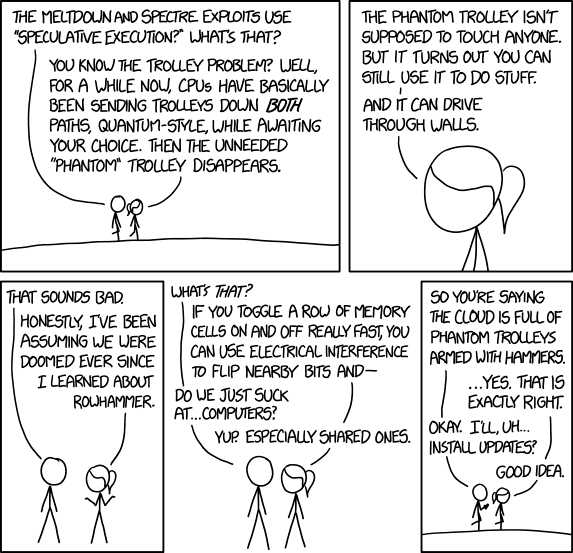If an AMD processor encounters an instruction with higher privilege, it doesn't execute it in anticipation of getting permission and that's the whole point. It takes longer but in the long run it doesn't risk exposing the result of the privileged instruction.Intel was saying "hey, it's not just us, everybody does it."
I should note that this is mostly of concern to enterprises that engage in cloud computing where elements of a computer are shared with other enterprises. The sad part is that many of these enterprises use the same perversions of Windows so standalone users suffer the performance consequences (unless their antivirus solution prevents installation of the "mitigation") as collateral damage.


